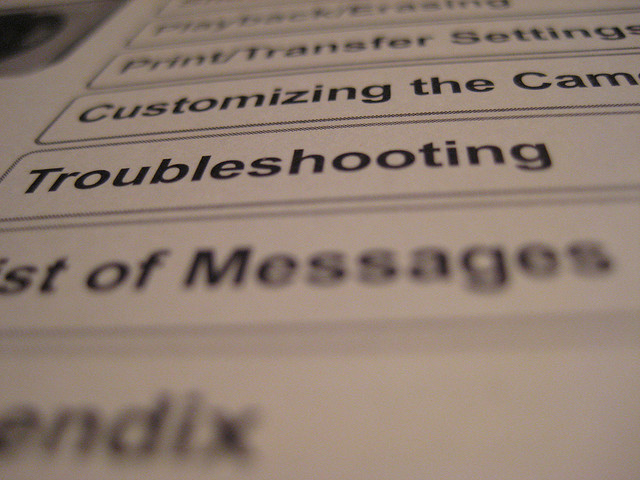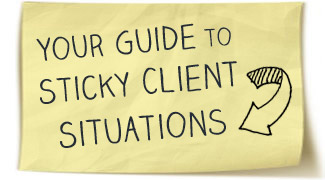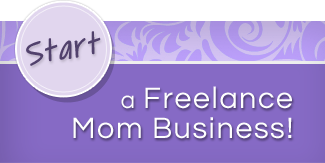
Throughout the mentoring calls that I’ve done and the first sessions of my new, small-group course “Build Your Best Business,” there is one thing I keep hearing again and again:
You want to know how to get more great business.
Readers who are new need clients. Readers who have been around for a while want to have clients who pay more, treat them better, and/or help them to work they love.
But while I’m clearly hearing people want more and better business, I’m not hearing so clearly how they are going about that.
Marketing should be an integral part of your work schedule, because without it, you’re left with whatever clients come your way on their own—not the ones you would choose for yourself. But what happens if you’re marketing and just aren’t closing that many deals?
We’ve talked recently about common objections prospects have and how to face them, so check that out if you’ve talked with a prospective client and they fell off because:
- There was a lack of urgency
- The price was too high
- You caught them at a bad time
But if you are having problems earlier in your prospecting cycle with standing out from the pack and piquing your prospect’s interest in the first place, ask yourself these four simple questions to quickly try to diagnose the problem.
Did you tell them why you are the BEST person for the job?
When you are responding to a job board posting or a referral from another freelancer or friend, it’s important to put yourself in the shoes of the person on the other side.
A deluge of emails, primarily from people that your prospect doesn’t know and thus has no real attachment to, are all arriving with various personalities, backgrounds, and ideas about the available gig.
How can you stand out?
A great idea is one thing—the prospect can have someone else implement it. A great background is another—though it doesn’t show how you would solve the prospect’s problem now.
When you don’t know who you are dealing with and don’t have the chance to interact on a one-on-one level, you must spoon feed them reasons to choose you.
Don’t be boastful (”I’m clearly the best choice for this gig because I’m a published author”) or vaguely demure (”In the past, I’ve consulted on similar projects for various corporations”).
Make sure you are giving the prospect concrete, incontrovertible facts that make it clear why you can do the job, like:
- I’ve increased Twitter followers for past clients by 1200% and engagement by 5000% and you can find a case study on one of these projects on my website here (with link)
- I completed a similar project for a past client that needed to turn around 120 pages of web copy and 4 landing pages in one week—ahead of schedule
Did you mirror the prospect’s tone and attitude?
When you get a call from a telemarketer, what gets you to hang up immediately versus let them keep chatting?
If you hear that certain speech pattern—you know what I’m talking about—saying,
“Hello, I’m calling from _____, and I’d like to talk to you today about ______,” you know right off the bat you’re not interested even if you don’t know what the person is calling about.
Because their tone sets off warning bells.
Any good sales call or email positions you not as the constantly attacking sales enemy, but as a person who is going to help make the life of another person easier.
If you are replying to a job ad, this is easy because you can see if the tone of the listing is:
- Business-like and to the point
- Curt and wary of even having to openly solicit for this opening
- Friendly and casual
- Naïve and in need of help better crafting the position
Each of these approaches on the prospect side requires a totally different approach from you.
If you are reaching out to someone cold that doesn’t have a listing for help, you can still find out about their style and tone through the person’s website, Facebook and Twitter to help you speak their language.
There’s a reason that even in the digital age so many people still do business through face-to-face interactions or with people they already know: trust.
Anything you can do to make a prospect bring you into their circle of trust faster will help you close the deal. And anything that you do that makes them keep you at a distance makes it almost a sure thing that they’ll go with someone else.
Did you get on the phone?
While a lot of people do a lot of work online these days, getting on the phone to close a large project or contract for on-going work is still key. And this has a lot to do with what we mentioned above.
This is the difference between the prospect seeing you are just one more faceless online entity that they can treat, pay and communicate with like someone who doesn’t really exist and the prospect valuing your contributions and your requests.
If you don’t have a lot of specific experience—something that would kill you if the prospect was just going off of resumes and samples—hopping on the phone and showing that you are professional, trustworthy, and courteous and understand the prospect’s needs and situation can go a long way.
Find out more about how to structure that call here.
Did you ask for the sale?
I’m going to keep this short and sweet, because while this is the most powerful way to get more business, it’s also the simplest.
Let’s pretend you are at a speed-dating event for service providers and prospects at a conference. The person you are meeting with is going to see twenty other people with your skills. That afternoon.
How can you close the deal before (or rather than) someone else?
Just ask.
It was great talking to you. Can I send you a proposal with details and pricing on how we can work together on this project?
Giving prospects simple things they can say yes to—sending a proposal, hopping on the phone to discuss the proposal, passing the proposal on to accounting to make sure it fits in their budget—is crucial to moving new business relationships forward.
If you don’t ask, you don’t get.
(I know you may want to teach your kids otherwise, but it’s so true in business. Don’t believe me? Check out this game-changing study.)





